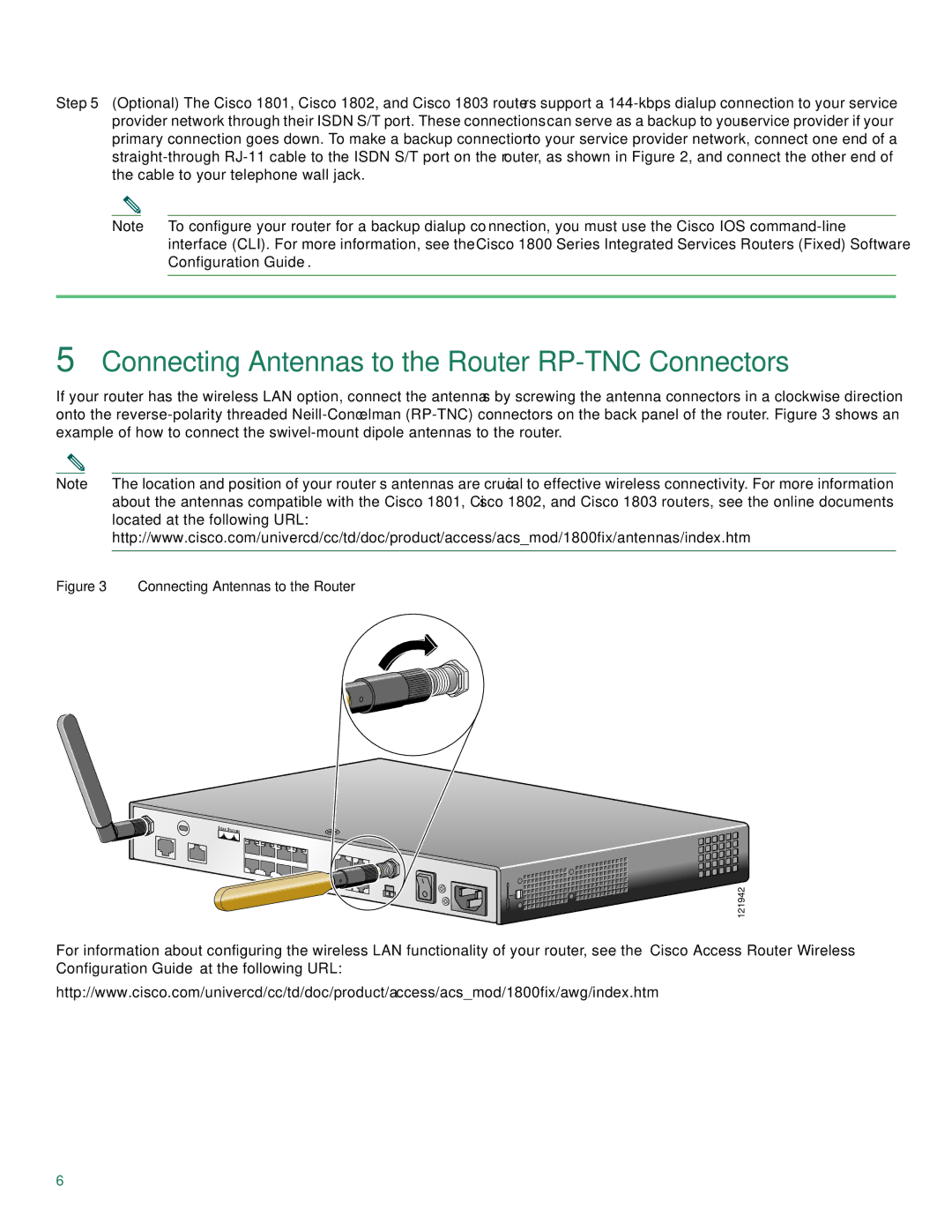Cisco 1803, Cisco 1802, Cisco 1801 specifications
Cisco Systems is a leader in networking and telecommunications technology, offering a wide range of routers designed to meet the needs of various business environments. Among their notable products are the Cisco 1800 Series routers, specifically the Cisco 1801, Cisco 1802, and Cisco 1803 models. These routers are engineered for small to medium-sized enterprises, delivering robust performance, security, and versatility.The Cisco 1801 is a compact router that serves as a reliable solution for small branch offices. It features an integrated WAN port that supports both DSL and fixed T1 connections, making it ideal for organizations relying on various types of broadband access. It supports advanced security features, including stateful firewall capabilities and VPN (Virtual Private Network) support, providing a secure connection for remote workers.
Moving to the Cisco 1802, this model expands upon the features of the 1801 while introducing enhancements such as an increased number of interfaces. This router supports modular WAN interfaces, allowing for flexibility in connectivity options. This is essential for businesses that may need to adapt their network infrastructure as their demands evolve. The Cisco 1802 also includes advanced routing technologies, enabling improved performance for data-intensive applications and services.
The Cisco 1803 stands as the most advanced option in this series, designed to deliver higher capacity and faster processing capabilities. It incorporates multiple built-in Ethernet ports, which facilitate local area network (LAN) connectivity. A salient feature of the Cisco 1803 is its support for advanced QoS (Quality of Service) capabilities, ensuring that critical applications receive the necessary bandwidth to function optimally. Moreover, like its counterparts, it provides robust security features, ensuring that sensitive corporate data remains protected.
The entire Cisco 1800 Series is designed with energy efficiency in mind, which is crucial for businesses looking to reduce their carbon footprint. They also support Cisco’s Intelligent Network features, promoting seamless integration with existing network infrastructure. Overall, the Cisco 1801, 1802, and 1803 provide scalable and reliable networking solutions that cater to the growing demands of modern digital enterprises, emphasizing security, flexibility, and performance. Whether a small office or a branch of a larger organization, these routers deliver the critical capabilities necessary for efficient operation in today’s interconnected world.

